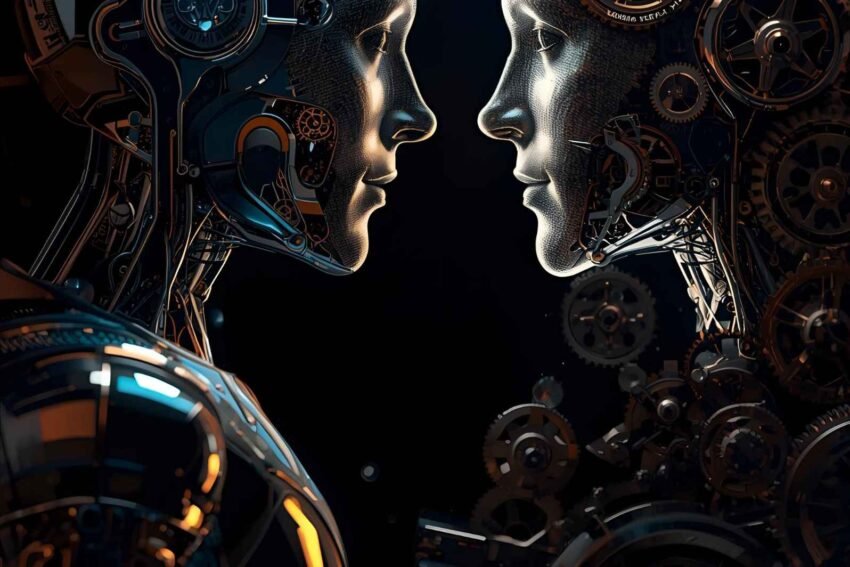Technology plays a major role in our everyday life. We access complex systems every time we use a smartphone or smart TV. But did you ever stop to think about what runs them? Some appliances employ conventional algorithms, but some are based on artificial intelligence (AI). Both are major contributors, but in different ways. So what’s the difference, and which one actually makes your device smarter?
What Are Traditional Algorithms?
Your regular algorithm is basically a series of “steps” you tell the computer to do one at a time. These rules inform the system what to do when there is a problem. When you search for a contact on your phone, for instance, the device is carrying out a straightforward algorithm. It is running through names, one at a time, and showing you the selected match. These algorithms are predictable. You always get the same thing out if you put the same thing in.
What Is Artificial Intelligence (AI)?
AI is different. It doesn’t just follow a set of static steps, it learns from data and gets better over time. AI strives to emulate the human brain. It can recognize patterns, make decisions and even anticipate what you need. When your phone offers an auto-suggested reply to a chat, or when your camera enhances the light in a photo, that’s AI.
What is the Difference between AI Algorithms and Traditional Ones?
Learning Ability
- Traditional algorithms do not learn. They only follow rules.
- The AI gets smarter by learning from past data.
Flexibility
- Traditional algorithms are effective when problems are clearly defined and straightforward.
- Complex or uncertain environments are the kinds of places where AI excels.
Decision-Making
- Classical algorithms do not undergo them.
- AI can decide by discerning a pattern.
Speed of Improvement
- Algorithms as we now understand them are things that don’t change unless a programmer changes them.
- You can’t overfit attitude. AI only gets better with more data.
Where Are Traditional Algorithms in Devices?
- Calculators: They have set laws of arithmetic to which they adhere.
- Search Contacts: As you type a name, your phone searches as you go.
- File Compression: Simple rules make files smaller.
Where Do You Think AI Belongs in Devices?
- Voice Assistants: Siri, Alexa and Google Assistant rely on AI to comprehend commands.
- Smart Cameras: A.I. helps phones recognize faces and focus the lens.
- Systems of Recommendation: Apps that accumulate data on users’ behavior to suggest movies, songs or shopping items using artificial intelligence.
- Health Tracking: By a topic of fact, smartwatches also have an AI to keep track of your heart rate and that of when you asleep.
Do Devices Use Both Together?
Yes, many devices combine both. For instance, your phone employs conventional algorithms for menial tasks such as unlocking with a PIN. But it does rely on AI for things like face recognition. This combination is what helps make devices faster and smarter.
What’s Best for Your Devices?
It’s not a question of overall better. AI systems and classical algorithms each have strengths. Traditional algorithms are stable and efficient at simple tasks. AI is effective for complicated problems that are dynamic and human-like. The devices of the future require using both together in the right way.
Conclusion
Your devices are smart not only because of A.I., but also because of old-fashioned algorithms. Algorithms take care of the routine; AI provides the “intelligence” that makes devices feel new and personal. The next time you power up your phone or smart TV, you’ll know both are quietly collaborating to make life better.
FAQs:
Q1. Is AI replacing traditional algorithms?
No, AI is not replacing them. Both are used together. For straightforward and well-defined applications, we keep relying on classical schemes.
Q2. Why do people think AI is more powerful?
AI is potent because it can learn, adapt and predict. That is not something traditional algorithms can do.
Q3. Is AI on every device today?
Not every device, but many modern devices such as smartphones, smart televisions and watches rely on AI for additional capabilities.
Q4. Are AI-powered devices more expensive?
Yes, in most cases. Devices with AI capabilities are more expensive because they consume new technology.
Q5. Can AI exist without old-school algorithms?
No, AI, is algorithms. It just is – well stepped on, that’s all. (It may be more advanced in the way it learns and applies rules.)
